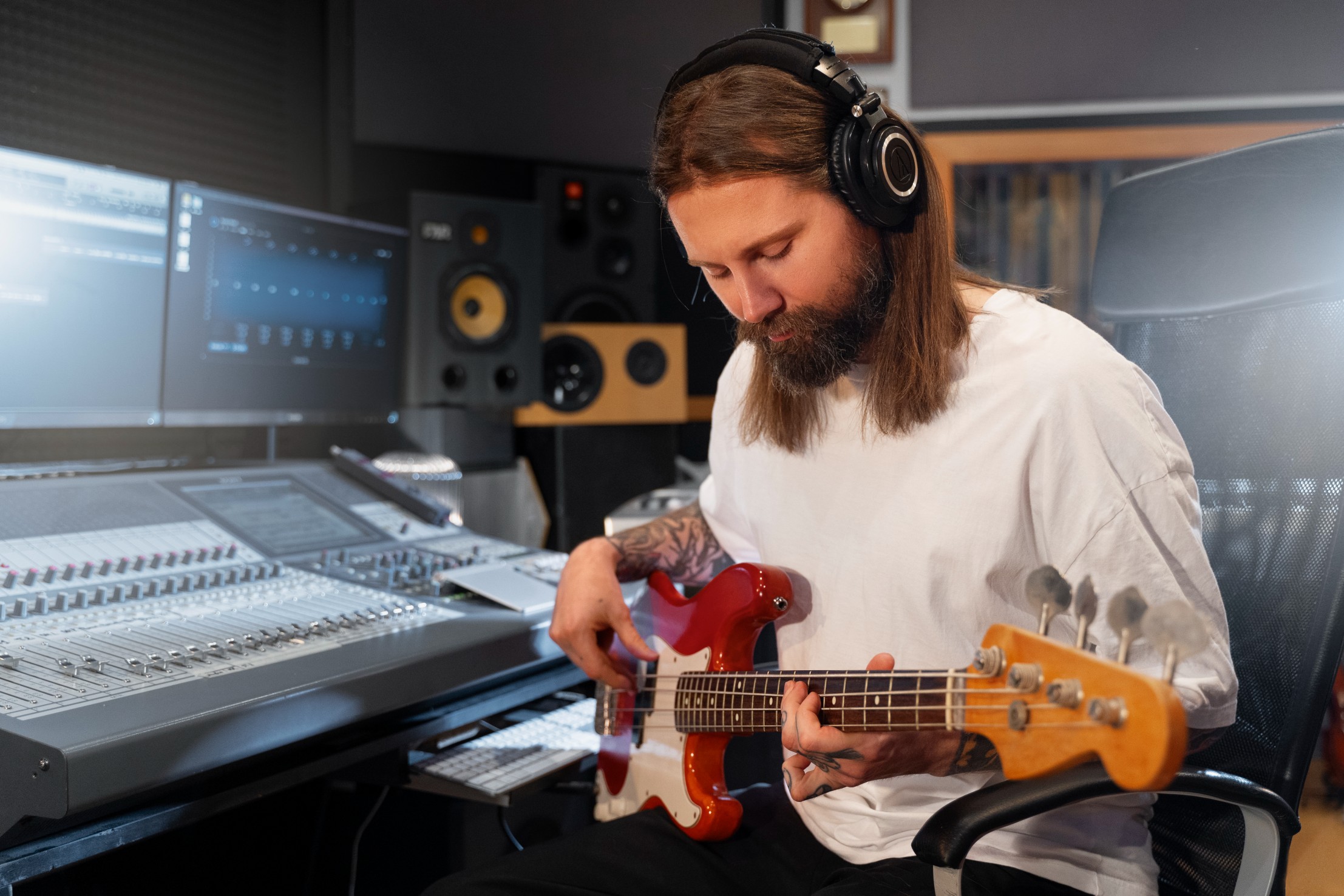AI’s Role in Music: Revolutionizing Creativity or Threatening Artistic Integrity?

Artificial Intelligence (AI) has been making waves across various industries, and the music industry is no exception. Terms like “machine learning” (ML) and “generative AI” often evoke futuristic images of technology capable of complex, creative tasks. But the reality is both more grounded and nuanced. Machine learning and AI tools rely heavily on the data they are trained on, and their "creations" aren't born from thin air—they are interpretations of existing content, guided by human input.
For instance, consider Spotify’s recommendation algorithm. It suggests songs based on your listening history, but the process isn’t random. AI algorithms analyze your musical preferences and suggest new tracks or artists with similar attributes. By processing vast amounts of data, AI can make connections like, "If User A enjoys this particular band, they are likely to enjoy this other band with similar sound qualities or genres." Human intervention provides the inputs, and AI makes the predictions.
However, AI’s involvement in the music industry goes far beyond suggesting your next favorite song. As machine learning continues to advance, it is reshaping everything from music creation to production, and even how music is consumed. Let’s dive deeper into how AI is changing the music industry and the potential pitfalls it brings.
The influence of AI in music is not as new as some might think. Artists, producers, composers, and engineers have been integrating AI tools into their creative processes for years. Whether it’s for enhancing the quality of recordings or generating new ideas, AI is providing both efficiency and creative freedom. Below are some ways in which AI is currently being used across the industry:
Reviving Classic Recordings
One notable example is the use of machine learning to clean up old recordings. Take the Beatles’ song "Now and Then," which was derived from a lo-fi John Lennon demo. AI-powered software helped extract usable vocal tracks, turning an old, barely audible recording into a fully restored version, now recognized as the last recorded Beatles song. Without AI, this process would have been near impossible.
AI as a Creative Partner
Songwriters today are experimenting with AI tools like ChatGPT to generate lyrical ideas or alternative interpretations of their initial drafts. These tools don’t replace human creativity but can serve as an inspirational partner. AI is now capable of helping songwriters overcome writer's block by suggesting themes, rhyme patterns, and even complete verses based on existing inputs.
Enhancing Studio Production
AI tools have streamlined the technical side of music production. Vocal pitch correction software, for example, can automatically adjust off-key notes in a recording. Meanwhile, sound engineers use AI to mix recordings more efficiently, saving time and, consequently, reducing the overall cost of production. AI is also capable of simulating instruments, offering a wider range of musical possibilities without the need for multiple musicians or expensive studio time.
Virtual Instruments and Sound Design
AI can generate unique musical sounds and instruments, allowing artists to expand their sonic palette. For independent musicians or small studios with limited budgets, AI offers a cost-effective way to produce high-quality compositions that would traditionally require a full band or orchestra.
While these examples illustrate AI’s positive contributions to the music industry, not all advancements are without complications. As AI technology becomes more sophisticated, its potential to replicate human creativity—particularly vocal performances—raises a number of ethical and legal questions.
The Issue of Copyright and Artistic Ownership
One of the major concerns within the music industry is the use of existing artists' work to train AI systems. Ola Sars, a veteran in the music technology sector, articulates the problem clearly: “The issue that rights holders, artists, or songwriters have with [AI] is that [these companies are] using their art to train the machines to produce music based on their music.” Essentially, the original work of an artist could be used without their consent to train AI models, which could then generate music that mimics the style or even the voice of that artist. This blurs the line between inspiration and replication.
In many instances, it becomes challenging to distinguish between human-created and AI-generated music. This confusion has profound implications for copyright law. If an AI system generates a song that closely mimics the vocal style of a famous artist, who owns the rights to that music? The artist whose voice was used as a model? The engineers who created the AI? Or no one at all?
The Threat to Revenue and Authenticity
The potential for AI to create music indistinguishable from human-produced tracks is also unsettling for many in the industry. There is a fear that AI-generated content could flood the market, diluting the value of human artistry. Labels and publishers worry about a future where consumers can't tell the difference between music made by machines and that created by real artists. If AI-generated music becomes the norm, human artists might struggle to retain their revenue streams, as audiences could become indifferent to the source of the content they are consuming.
To address these challenges, there have been moves toward regulation. For instance, the state of Tennessee passed the Ensuring Likeness Voice and Image Security (ELVIS) Act. This law protects an artist’s image, voice, and likeness from being replicated by AI without consent. It’s an important step, but much more needs to be done on a global scale to create a fair and transparent framework for the use of AI in music production.
The ELVIS Act broadens existing laws around an artist’s right to control their public image. Previously, these laws only covered an artist’s name and physical likeness, but the updated legislation now includes protections against AI-generated imitations. This ensures that artists have more control over how their identity is used, preventing potential abuses in the evolving AI landscape.
Despite these concerns, it’s important to acknowledge that AI also democratizes music creation. With AI-powered software becoming more affordable and accessible, musicians from all walks of life can now experiment with new sounds, create high-quality recordings, and share their art with the world. You no longer need access to expensive recording studios or professional musicians to bring your musical vision to life.
As AI continues to evolve, the music industry will need to strike a balance between innovation and ethics. Artists and engineers must collaborate to ensure that AI is used as a tool for creativity, not a substitute for human expression. Proper regulations, ethical guidelines, and ongoing dialogue will help the industry harness AI’s potential while safeguarding the rights of creators.
The future of AI in music is undeniably exciting. It offers unprecedented possibilities for creativity, from generating new sounds to reviving lost recordings. Yet, it also presents significant challenges that cannot be ignored. As AI continues to evolve, the music industry must develop frameworks that respect the integrity of artists and ensure that their work is protected.
By embracing AI with caution, the music industry can continue to innovate while maintaining its commitment to authenticity and artistic ownership. Ultimately, the goal should be to use AI as a complementary tool that enhances, rather than replaces, human creativity.

By redesigning packaging, exploring reusable models, investing in smart tracking, and leveraging the VDC model for execution, beverage manufacturers can reduce their environmental footprint while boosting their brand relevance and operational resilience.

Even the most capable in-house IT teams often fall short when it comes to minimizing downtime. While Managed Services solve much of the downtime problem, the VDC model supercharges it with flexibility, scalability, and domain-specific expertise.